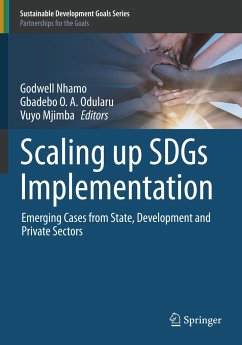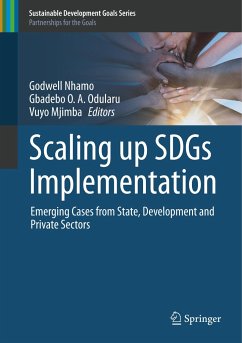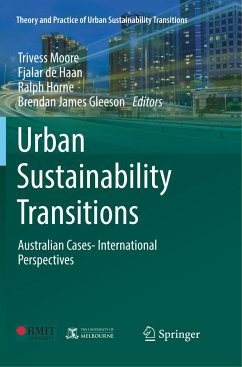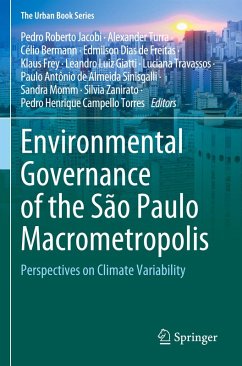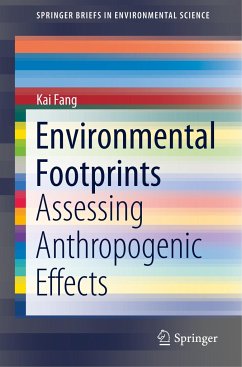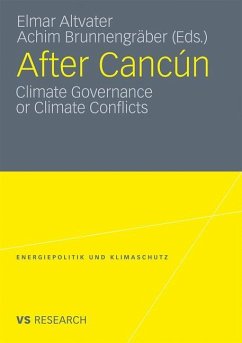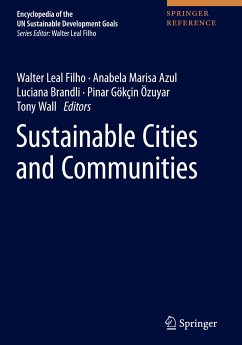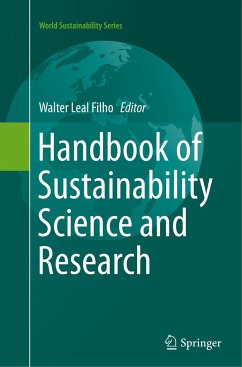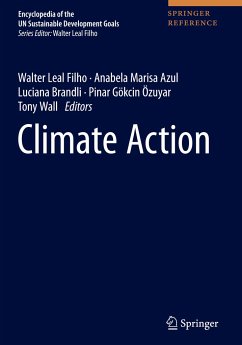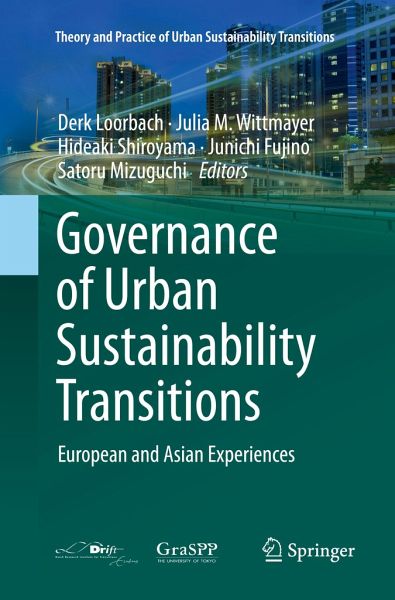
Governance of Urban Sustainability Transitions
European and Asian Experiences
Herausgegeben: Loorbach, Derk; Wittmayer, Julia M.; Shiroyama, Hideaki; Fujino, Junichi; Mizuguchi, Satoru
Versandkostenfrei!
Versandfertig in 6-10 Tagen
98,99 €
inkl. MwSt.

PAYBACK Punkte
49 °P sammeln!
Reading this book will lead to new insights compelling to an international audience into how cities address the sustainability challenges they face. They do this by not repeating old patterns but by searching for new and innovative methods and instruments based on shared principles of a transitions approach. The book describes the quest of cities on two continents to accelerate and stimulate such a transition to sustainability. The aim of the book is twofold: to provide insights into how cities are addressing this challenge conceptually and practically, and to learn from a comparison of govern...
Reading this book will lead to new insights compelling to an international audience into how cities address the sustainability challenges they face. They do this by not repeating old patterns but by searching for new and innovative methods and instruments based on shared principles of a transitions approach. The book describes the quest of cities on two continents to accelerate and stimulate such a transition to sustainability. The aim of the book is twofold: to provide insights into how cities are addressing this challenge conceptually and practically, and to learn from a comparison of governance strategies in Europe and Asia. The book is informed by transition thinking as it was developed in the last decade in Europe and as it is increasingly being applied in Asia. The analytical framework is based on principles of transition management, which draws on insights from complexity science, sociology, and governance theories. Onlyrecently this approach has been adapted to the urban context, and this book is an opportunity to share these experiences with a wider audience. For scholars this work offers a presentation of recent state-of-the-art theoretical developments in transition governance applied to the context of cities. For urban planners, professionals, and practitioners it offers a framework for understanding ongoing developments as well as methods and instruments for dealing with them. The content is potentially appealing to post-graduate and graduate students of environmental management, policy studies, and urban studies programs.



